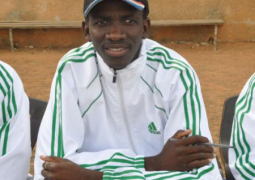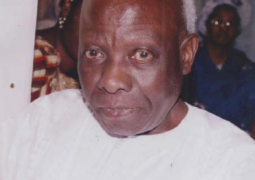The
51st ordinary session of the African Commission on Human and Peoples’ Rights,
ACHPR, opened yesterday at the Kairaba Beach Hotel with the political situation
in
An organ of the African Union Commission, the Banjul-based African Commission is hosting the bi-annual event which brought together delegates across the African continent, including human rights activists, civil society leaders, as well as the media.
The two-week long session, among others, seeks to assess and examine the current human rights situation on the continent, as well as consider and adopt state reports on their countries.
The Attorney General and Minister of Justice, Lamin Jobarteh, opened the high-level convergence with a strong word of caution for the coup leaders in Guinea Bissau and Mali, describing their actions as shameless, crude and completely out of fashion.
“When
Africa is striving for prosperity and governance, and its people competing
about which country has the best democracy, the junta in
According
to him, the military in both
He
called on the African Union, ECOWAS and the international community to join
forces to make sure that such “illegal barbarian” practice is history in
While
acknowledging the efforts of the African Commission in their struggle to
promote and protect human and peoples’ rights in
“The first is the economic crisis that is being experienced by the African continent, which has a negative impact on the promotion and protection of human rights. Added to this is the drought that plagued the entire continent and thereby exposing the people of Africa to eminent hunger, thereby hindering economic development where majority of the population survives essentially on agriculture and, in particular, subsistence farming,” he added.
In
his view, the African continent still witnesses armed conflicts and persistent
human rights abuses, particularly mass atrocity of crimes, which he said have
been occurring in various parts of
Jobarteh
noted with great concern what he described as the continued and persistent
conflicts in the northern parts of
This, he went on, is generally due to the lack of dialogue, and to the absence of a democratic culture among some of our political leaders.
Further noting that “human rights in my humble opinion are sacrosanct and inviolable; they are not subject to any form of negotiation”, Justice Minister Jobarteh said any system of government which not only denies but makes the protection of human rights impossible is clearly inviting a situation in which the use of violence is inevitable.
The
chairperson of the African Commission, Commissioner Catherine Dupe Atoki, also
condemned the situation in Guinea Bissau, Mali and the two
“The
African Commission continues to monitor the situation in Guinea Bissau, and
hopes that a clear message is being sent from the events in
According to her, the forces set loose by the Arab Spring have changed the region and, indeed, the world.
“Now, just as we must strongly support the green sprouts of democracy and human rights in many countries across the region, so we need to also remember that the work of constructing and of consolidation of gains made, is a journey fraught with challenges,” Commissioner Atoki stated.
She noted that there have been threats to the enjoyment of human rights on the continent – poverty, environmental degradation, climate change, neighboring conflicts and cross border consequences continue to hobble the development of social anchors that are critical to the stability of the state.
Other speakers included representatives of the national human rights institutions, NGOs steering committee, African court on human and peoples’ rights and AU member states all of whom denounced human rights violations and abuses in the continent.



